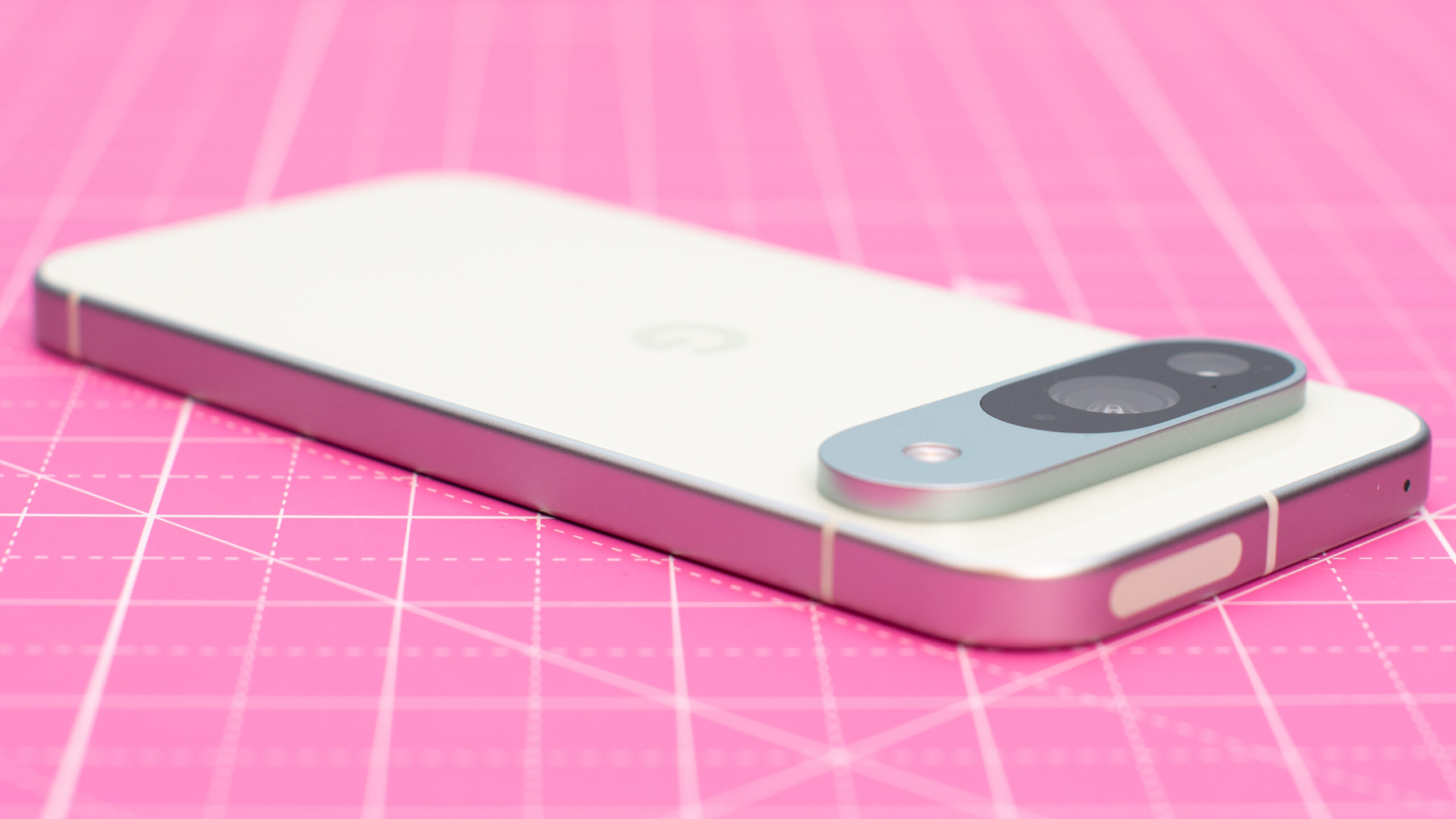Vibe coding — the ability to write complete code with just a few short AI prompts — has taken off in popularity. It started to become a popular concept a few months ago and has since been embraced by the AI community.
While the serious AI coders are using specific programs, clever tools and enhanced prompts, for the rest of us, it has been made easy by the mainstream AI chatbots.
You can write code with ChatGPT, Grok, Le Chat and just about any major chatbot out there. However, in messing around with the technology, two competitors have stood out to me the most.
Both Gemini and Claude have put in the work to make vibe coding both effective and easy for anyone to do. But which of the two is the better option, especially for people just getting started?
I put the two to the test, creating an array of apps and tools using these vibe coding features.
Reminders app
Claude:
Recently, I went to work making a reminders app in Claude. I had never found an app I liked enough for this feature, so I tried to make my own.
In a few prompts and a back-and-forth conversation with Claude, I had a complete app for making reminders, alarms, and a to-do list.
In a lot of ways, it did exactly what I needed. What I really appreciated about this process was how easy Claude made it. My original prompt was, realistically, too simple. Just asking it to code an app for to-do lists and reminders.
Claude then asked me further questions. How do I want it laid out? Do I want to be able to set times for the reminders? Do I have a style in mind?
After some back-and-forth discussions, Claude generated a really solid result. There are three tabs: One for reminders, one for to-do lists, and one for alarms.
It’s simple, but really quite effective.
Gemini:
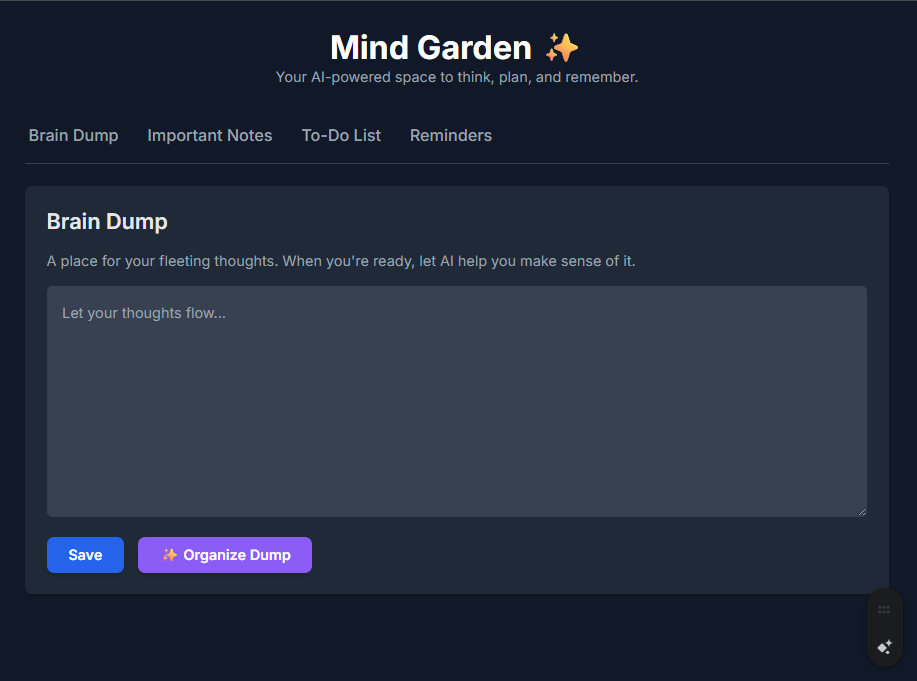
With Gemini, I had a very similar experience. It made a simple (and slightly boring) but effective system for my notes.
After some extended prompting, Gemini created a tool called “Mind Garden”. This included a brain dump section for random thoughts, a place for important notes, a to-do list and reminders section.
It then also added AI tools to each section. This included the ability to organize my brain dumps and extract any key points to my to-do list. There’s a tool for breaking my to-do lists down into manageable points and a summarize notes option.
In other words, Gemini went above and beyond here. While I don’t think it looked as good as what Claude created, it definitely made a more powerful tool and did so in a similar number of prompts.
Winner: Gemini
Learning cards
Claude:
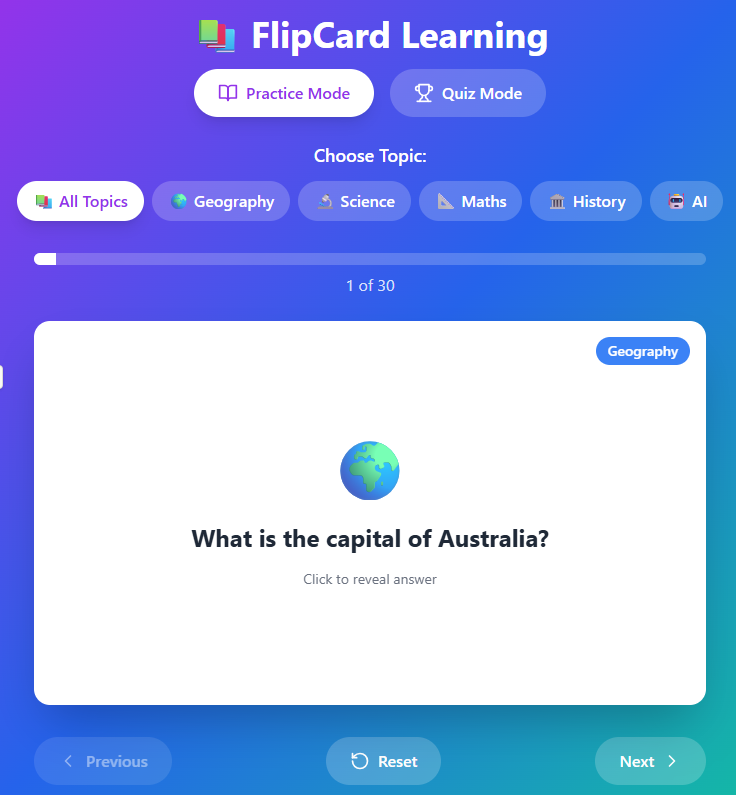
I’m not in school, and quite frankly, haven’t been for years. But that doesn’t mean I can’t still learn things! The next app I tried to make was a tool for learning new topics.
I tried this in the flip card method. I gave the same prompt to both tools, asking for a flipcard system for learning new topics, with questions on one side and answers on the back.
With Claude, this generated a fun version of the tool, complete with a lot of color and a stylish transition as the card rotated.
It was only offering a few cards, though, and they were all on geography for some reason. With a follow-up prompt, it added categories for Geography, science, maths, history and AI, all available with buttons and the option for a practice mode and quiz mode.
Gemini:
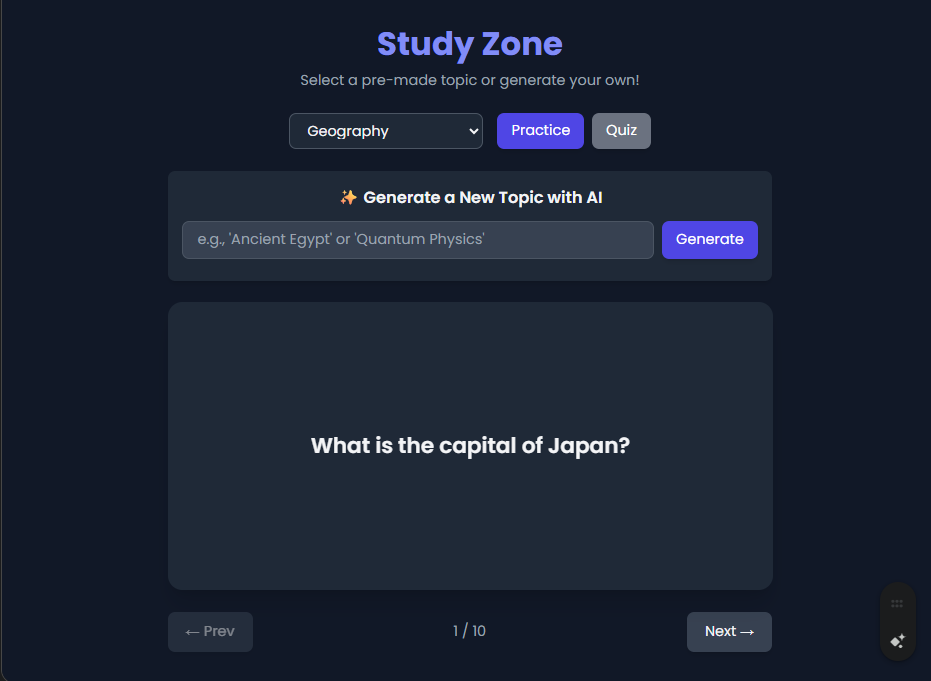
I gave the exact same prompt to Gemini, then followed up asking for the addition of the extra sections with the same topics.
It was very similar. There are buttons for practice mode and quiz mode, there is a drop down box for categories and, whichever topic you are on, there are a collection of cards to swipe through and test your knowledge.
Claude gets a lot of points here for simply looking better. It’s animation art was cleaner when swiping through cards and the colors used were much more exciting.
However, once again, Gemini’s AI tool brings a lot of weight. When I clicked to add AI features, it brought about the ability to generate new cards by simply asking for any topic. This is a great addition, but one that I was able to also add to Claude with one extra prompt.
Winner: Claude
Interactive kids book
Claude:
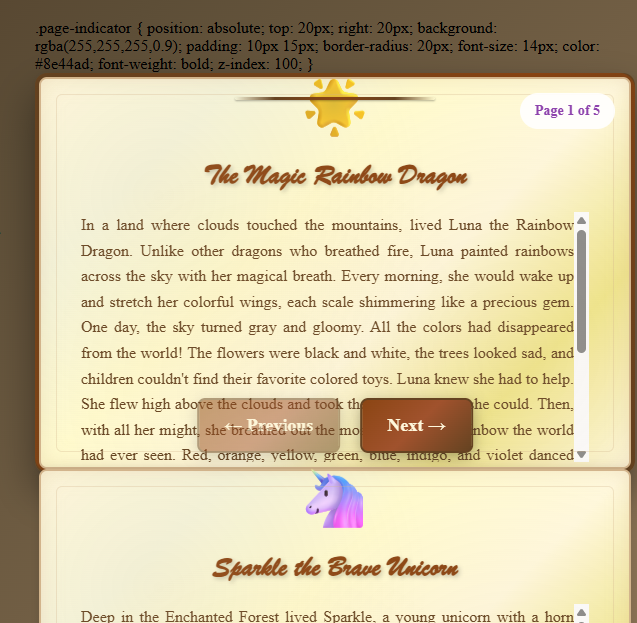
This felt like a good test for the AI system. I asked both systems to generate a book-style app, showing different children’s stories on each page.
On Claude, this started off well, generating five short stories, each with a button to click back and forth between them. They each have a small, moving emoji at the top and a scrolling option to go through.
Using the next and previous buttons also produced a small page-turning animation. While it looked good and worked well, I wanted to try and get it to look more like a book.
When prompting for this, everything fell slightly apart, turning it into one long page of text with code visible behind it. Each page also started to weirdly tilt when the mouse was ran over it.
Whatever I then asked Claude, I couldn’t seem to correct this. However, the earlier version was really good.
Gemini:
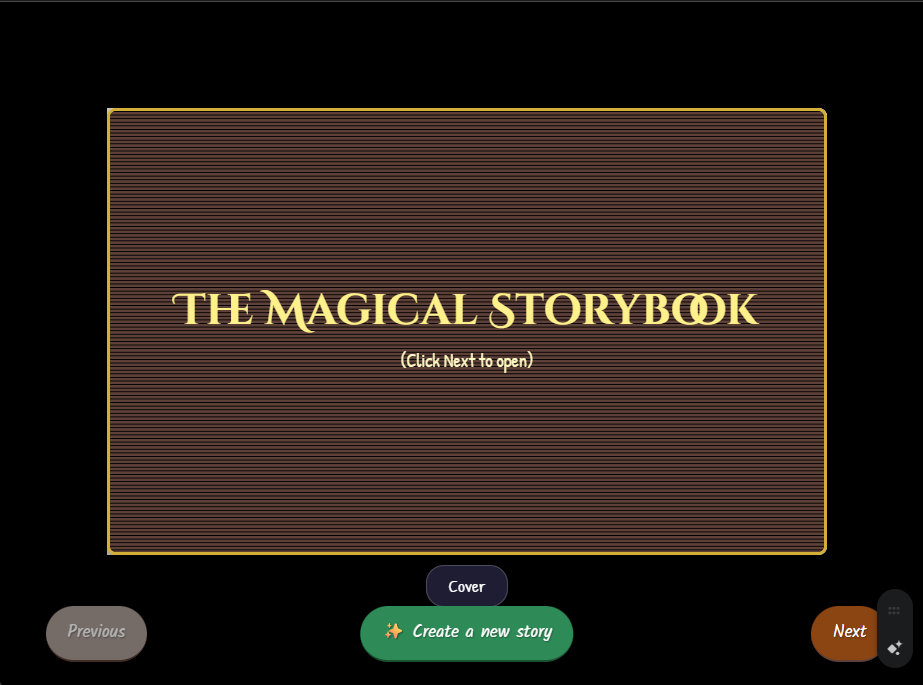
Once again, where Gemini fell behind in style, it made up for in functionality. The book itself is nothing exciting, consisting of a brown box with cartoonish text on it. It also displayed a lot of images as just question marks in boxes.
However, it achieved an effect much closer to a book, and used a pretty convincing effect for changing pages. It also included the ability to create a new story with the ability to ask for any topic using a prompt feature.
It was great in all ways except how it looked. Despite the issues I had with Claude, I tried to take Gemini further, prompting the book to look more interesting.
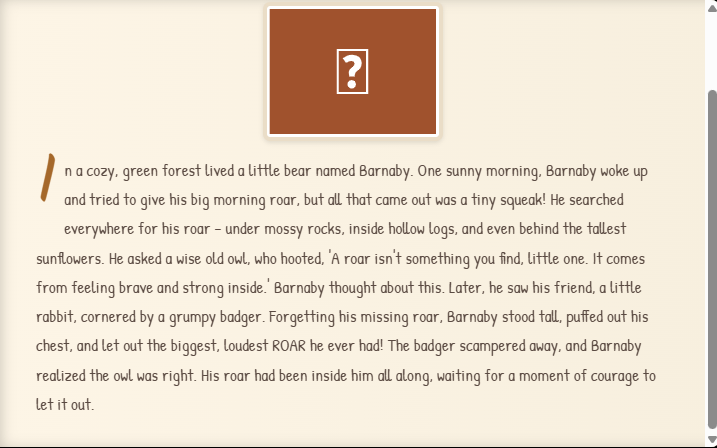
This did help slightly, adding a more interesting text style and a slightly improved front cover with a fun font. But the images were still missing and not much else changed.
However, compared to Claude, it did a much better job overall.
Winner: Gemini
Overall thoughts
Both Gemini and Claude have made huge improvements in their coding abilities. Anyone can easily make a huge range of apps and tools with relative ease on either platform.
The results were very similar on both, but I found that Gemini did a better job overall.
Claude seems to prioritize looks and style, offering better designs and an intuitive layout. I also like that you can use pre-designed apps from the Claude marketplace for free, giving a glimpse into what is possible with the attached prompts.
Gemini’s ability to add AI tools to each app is a game-changer though. It instantly improved all of the things I tried to create and added parts that, while obvious, massively improve the service.
More from Tom’s Guide
Back to Laptops


